Dr. Scarlet Sparkuhl Delia comes from a long line of artists and doctors. Scarlet grew up in Laguna Beach, California and studied modern dance, while simultaneously pursuing an undergraduate degree in pre-med. She spent a year studying Spanish in Chile, and then attended medical school, eventually settling down with her family in Fort Collins, Colorado. During her training in family medicine, Scarlet learned to quilt as a creative outlet. She is a passionate advocate for textile recycling, homeschools her two children, and all while working as a family doctor. Scarlet is also a member of the Fort Collins Modern Quilt Guild. Welcome, Scarlet!
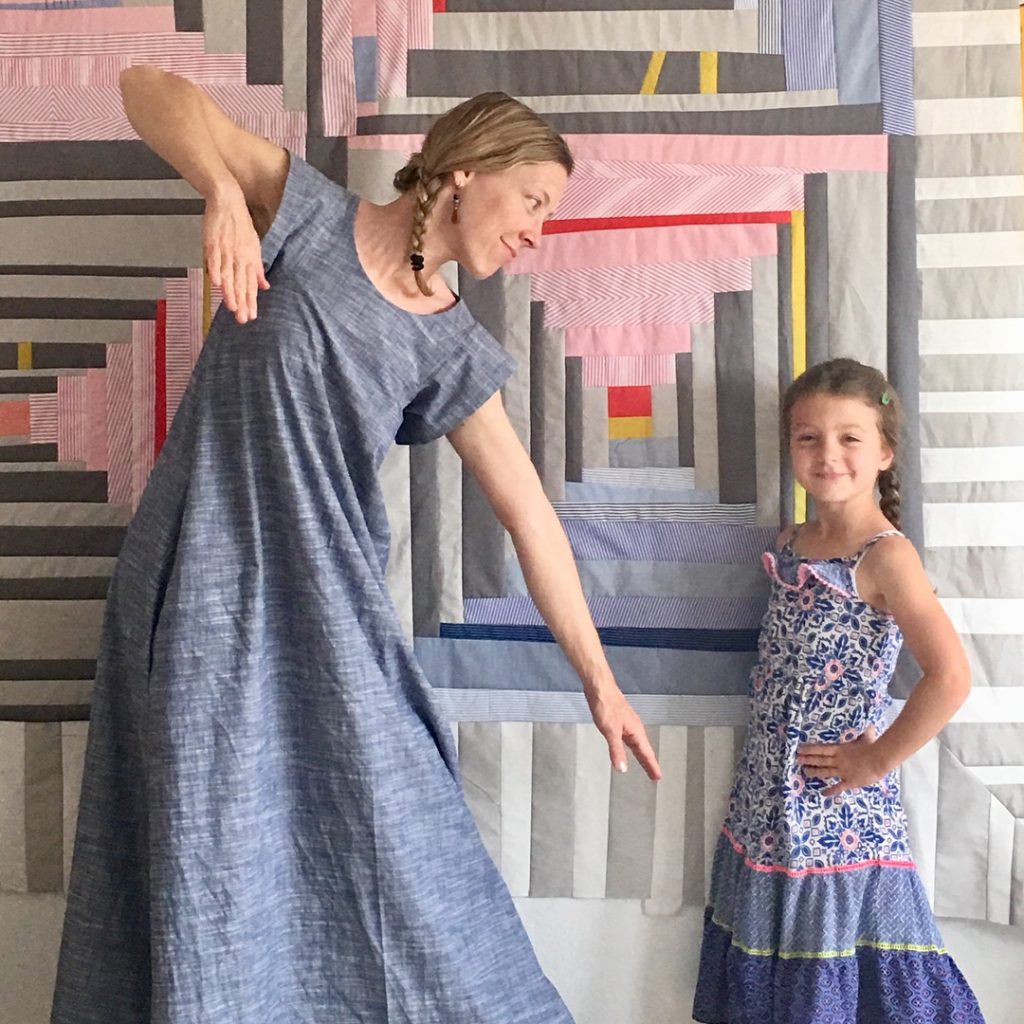 How would you describe your quilting style/aesthetic?
How would you describe your quilting style/aesthetic?
Scarlet: My style and aesthetic start with inspiration. My work is heavily influenced by the people and events in my life. It’s rare that I create a piece without a rich background involving something or someone who has punctuated my personal history. In many ways, my relationships with people and events are cultivated over the hours spent crafting a particular project over time. In my work, I use a mixture of improvisational piecing with a preference for solids, or solid-reading prints, and repurposed textiles. I also frequently avoid use of rulers or a rotary cutter. This technique gives the resultant fabric shapes and blocks a more organic feel and appearance.
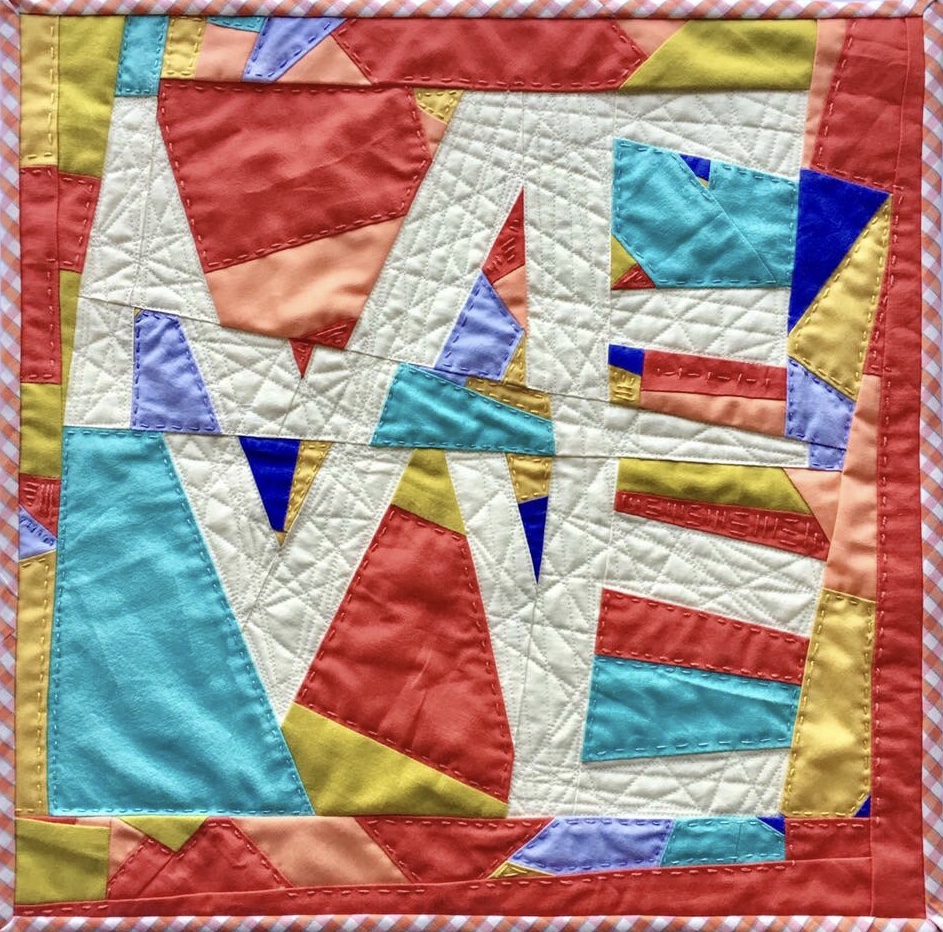
Me We Quilt. Image courtesy of Scarlet Sparkuhl Delia.
How would you describe the creative environment in your home as a child?
Scarlet: I never knew my parents as a couple, as they divorced when I was very young. Dichotomy is the best term I can think of to describe how utterly different they were, and how that influenced the creative environment of both homes. Mom was a laissez-faire flower child of the 60’s, whose background in art history was evident from floor to ceiling. Picture Timothy Leary meets the Italian Renaissance in 1984. I was left to explore music, paints, building materials, hand sewing, fort building, fence-scaling (you get the picture), unsupervised, for years on end. Dad, a physician by training, led a very different lifestyle. Ordered, scheduled, methodical. If I wanted to play piano, I was immediately enrolled in lessons and hounded to practice daily. If ballet was my passion, he made it very clear that 10,000 other ballerinas were vying for the same spot, and there would always be someone younger and better than me. I think the very diverse household styles and personalities of my parents gave me the ability to be extremely creative, but also a keen awareness of the commitment and dedication it takes to continue growing as an artist. You have to work at being an artist, if you want your artist to grow.
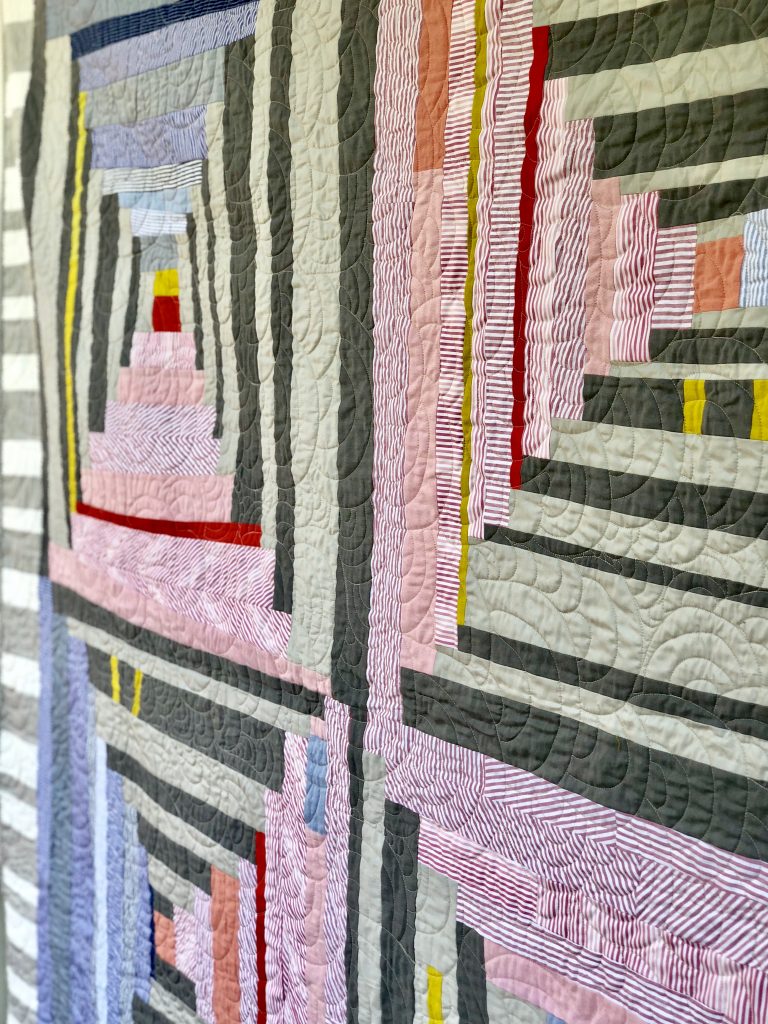
Union (Detail). Image courtesy of Scarlet Sparkuhl Delia.
What artists and makers do you most admire or have an influence on your work?
Scarlet: Martha Graham has been a continued inspiration for me, even years after her passing. She was unconventional in the truest sense of the word. A late-comer to the formal study of dance, she ended up creating some of the most iconic choreography and images of early modern dance. Her work was grounded in the rawness of human experience. She also highlighted the unique creativity in each of each of us. In one of her most famous quotes she reminds us “there is only one of you in all time, this expression is unique, and if you block it, it will never exist through any other medium; and be lost.”
Pat Sparkuhl, mixed media artist, and my uncle, has played a pivotal role in my understanding of art as a catalyst for discussion of socioeconomic and political issues. He has also highlighted the realities of life as a working artist. Being an artist doesn’t always pay the bills or provide the resources necessary to raise a family. Having another skill or career is important to make up for this deficit. He has engaged in many other jobs and skills with pride and enthusiasm, in order to continue his life’s work as an artist.
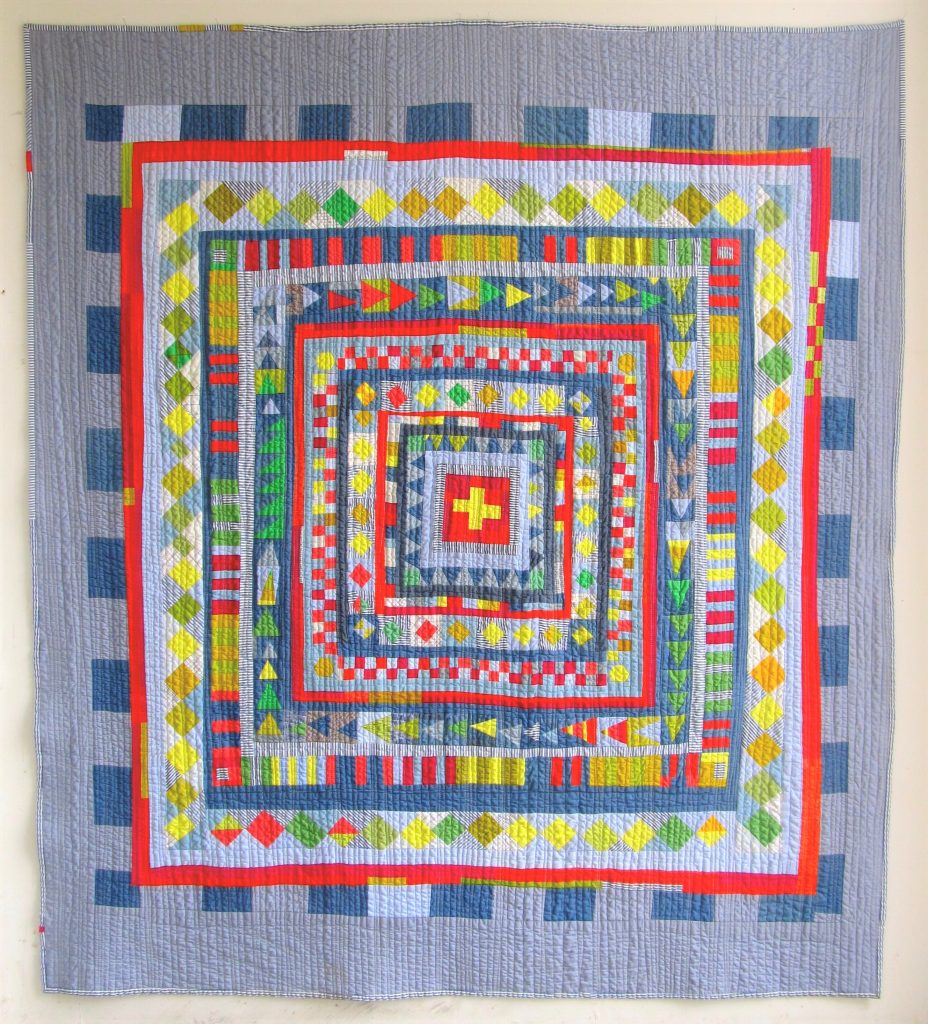
Journey Medallion. Image courtesy of Scarlet Sparkuhl Delia.
Do you consider yourself a “quilter”, an artist, or come combination of both?
Scarlet: I consider myself an artist, and quilting as one of many techniques I use to express that artist. Along with quilting I also enjoy creative writing, making my own clothing, and seasonal crafting. As a teenager and young adult, modern dance was my preferred medium. I have also dabbled in collage art and photography.
How would you define “making with intention”?
Scarlet: Textile waste is a sensitive topic for me. We can make all we want, with whatever we want, practically whenever we want. Click for the new fabric line and get it delivered in 48 hours. Pick up a fat quarter bundle at the local fabric shop. It’s so easy, and I do it regularly. Textile designers are artists too, and I want to support them. However, I have committed to be more intentional with what I have, or what is ethically sourced, or given to me for reuse. I also host periodic fabric remnant giveaways on social media to reinforce this theme, and encourage participation in the textile reuse movement. Being intentional with our resources is important, and I hope more people will move in that direction.
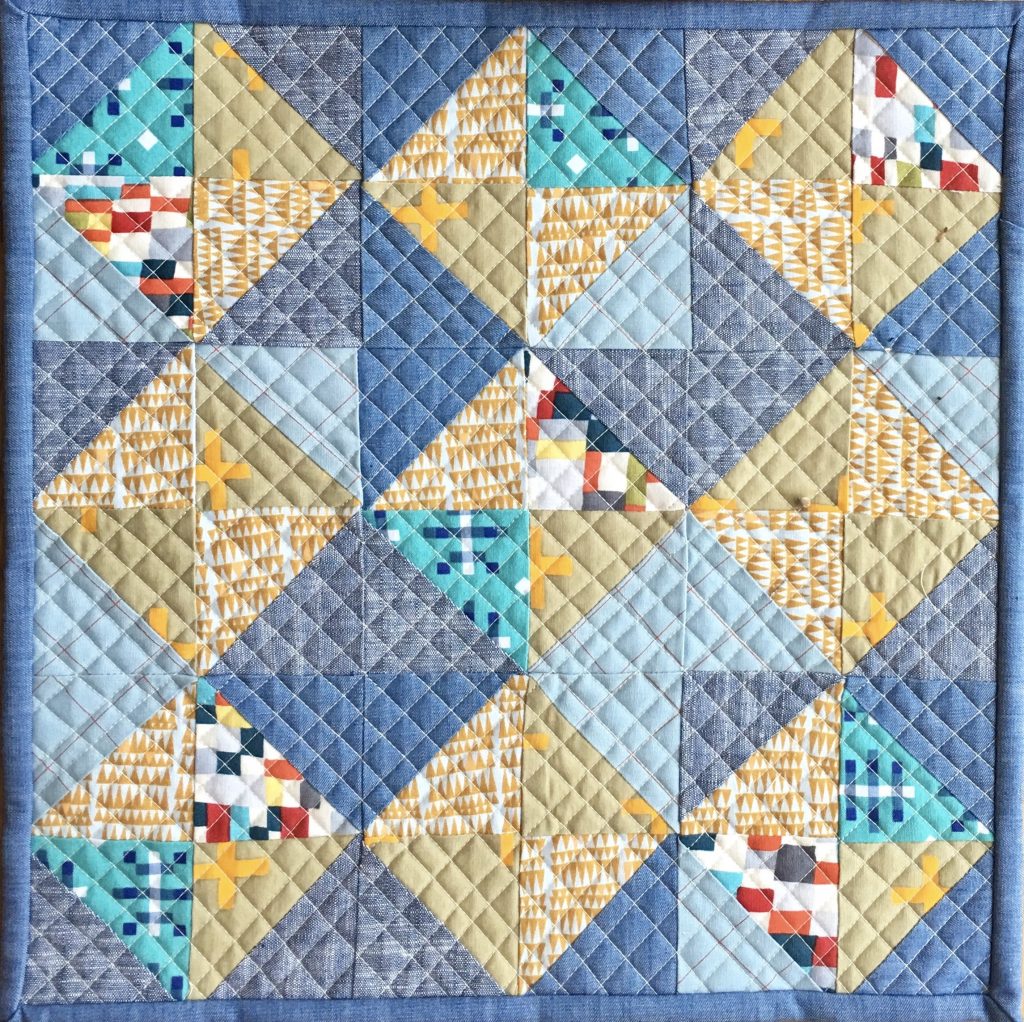
Autumn Spontaneity. Image courtesy of Scarlet Sparkuhl Delia.
Do you think that having a craft makes us more compassionate?
Scarlet: If I had a nickel for every statement piece, fundraiser project or non-profit art group that grew my sense of compassion, let’s just say I’d be retired spending more daylight hours quilting. My craft has allowed me to connect with many powerful social and political struggles. Through participation in quilt guilds, shows and on social media, I’ve received an education in race relations, sexual abuse, animal cruelty, the global impact of plastic waste, the sex trade, and the list goes on. In a time when we are hungry for leadership, craft returns us to the commonality of the human experience. At a quilt show or on a 2×2 inch Instagram image, craft brings us home to these shared experiences, cultivating compassion in the process.
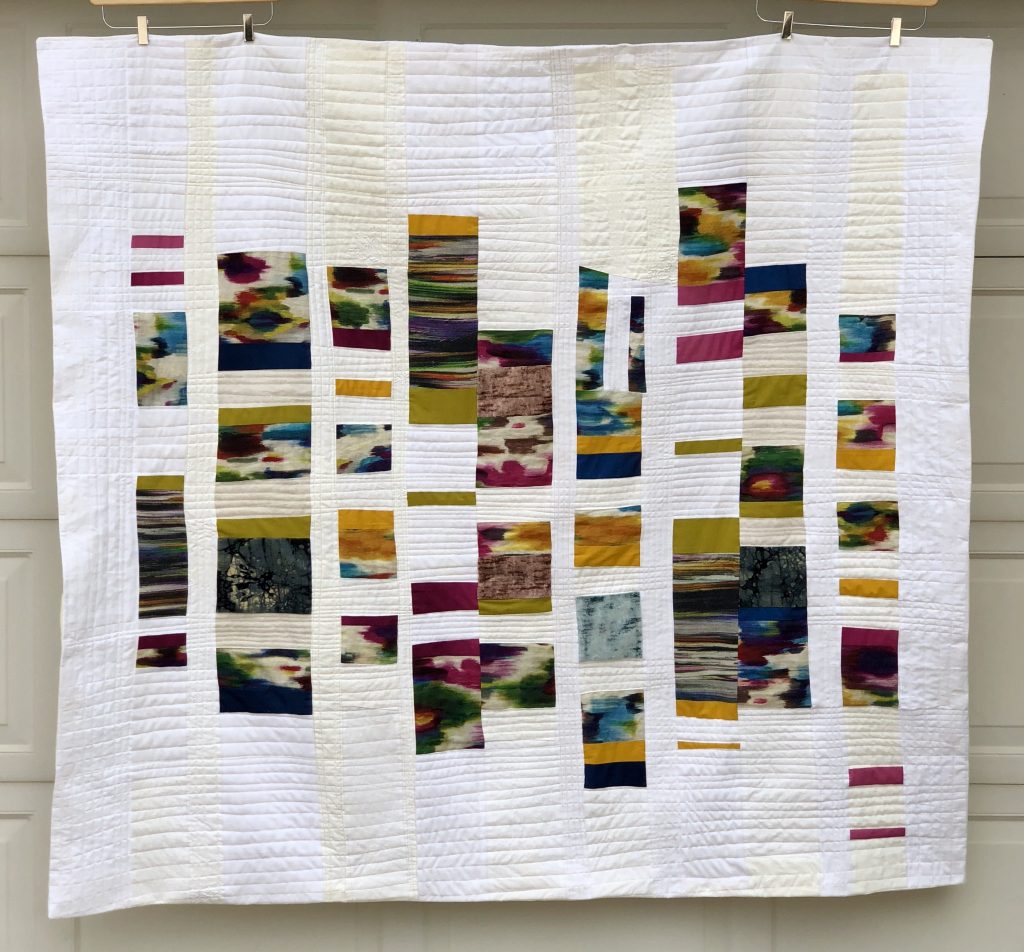
Special Occasion. Image courtesy of Scarlet Sparkuhl Delia.
How does creating feed your soul/spiritual purpose?
Scarlet: I’ll return to Martha Graham on this one. There is only one of me. There is only one of you. Our unique creative spirit is here in the present, and will never be again. In order to grow as an artist and human in general, creating is fundamental. Art is also a shared experience. It doesn’t live in a vacuum. Someone has to observe it, interpret it, and be moved by it. Otherwise it dies with the artist. This is why it is so important for quilters and other artists to show their work. Art enhances everyone’s life.
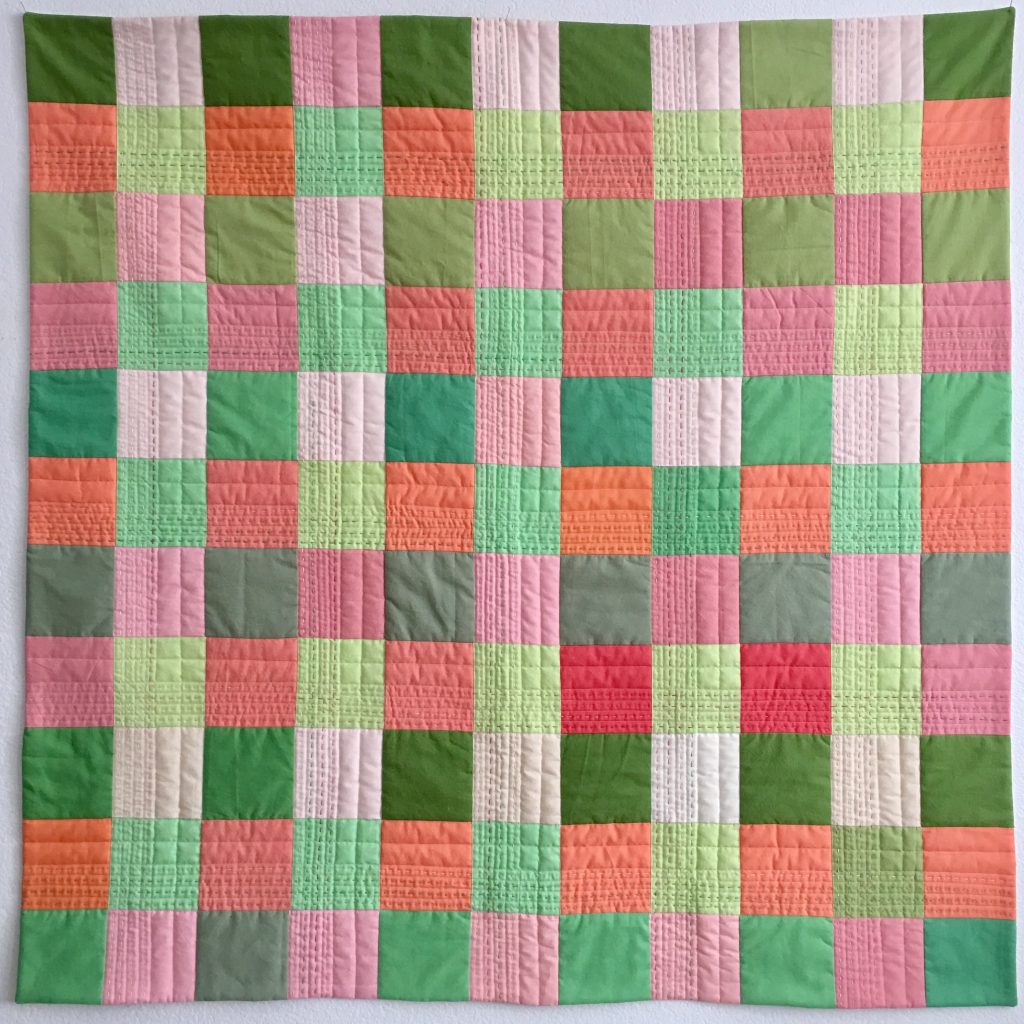
Pleasure. Image courtesy of Scarlet Sparkuhl Delia.
Are there any rituals that you perform to prepare/ground yourself in your work?
Scarlet: I imagine sitting in the lotus position, in front of an altar meditating, Krishna Das in the background, incense burning. Maybe in a perfect world? It’s a lot simpler than that. My rituals and preparations primarily involve communicating to the other people in my life (spouse, kids, friends) how important my craft is to me, how it brings me so much joy, and completes me. Prefacing my needs with a household of other people who want and need my attention is the first step to feeling safe and getting ready to start working on my next project. The rest is really up to me.
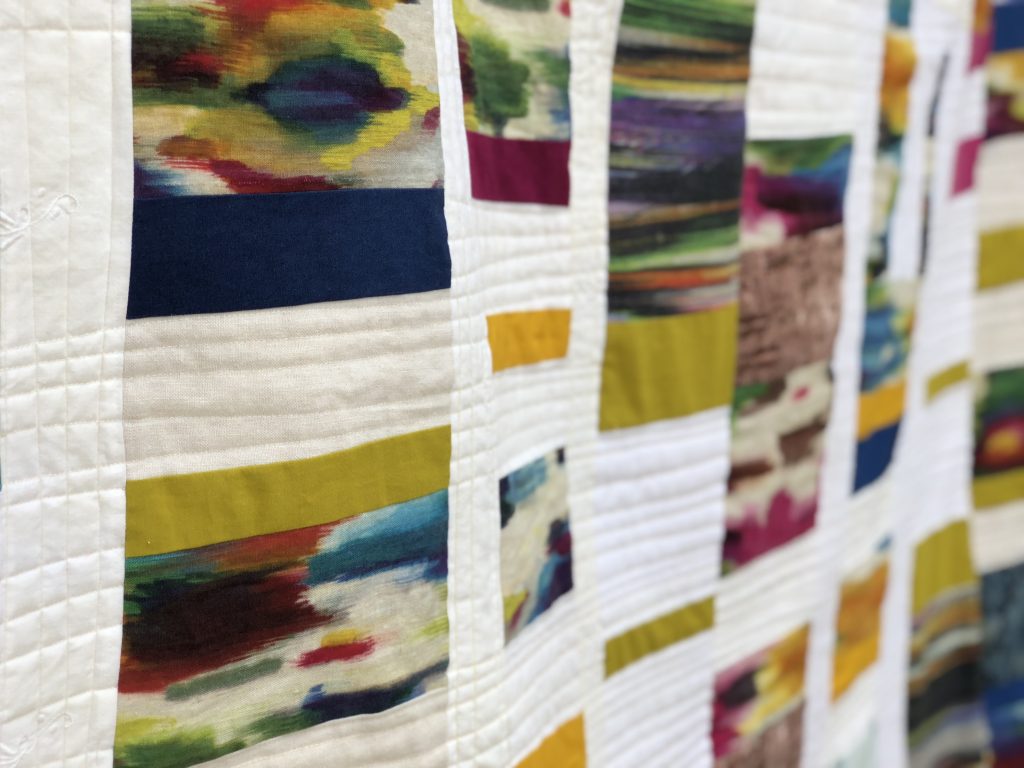
Special Occasion (Detail.) Image courtesy of Scarlet Sparkuhl Delia.
How to you deal with comparison to / envy of others? Can you describe a time when you used comparison/envy/admiration to push yourself in your own work and self-discovery?
Scarlet: The conundrum of social media and creative work is a real thing for me. Social media is such a potent well of creative imagery. Many solid connections have been made that help me cultivate my work and engage in the larger quilting/crafting community. But I do fall into the trap of comparing myself to others. I trace this back to my training as a physician, where so much emphasis is placed on being right all the time. Fierce competition lands you in medical school, and then residency, or living out plan B if you don’t get in or fail your board exam. The stakes are so high and for so long. It’s taken a conscious effort to reframe my perspective on envy and creative living. I am always working to set healthy limits on time spent admiring work of friends and colleagues, and engaging more in my own creative process.
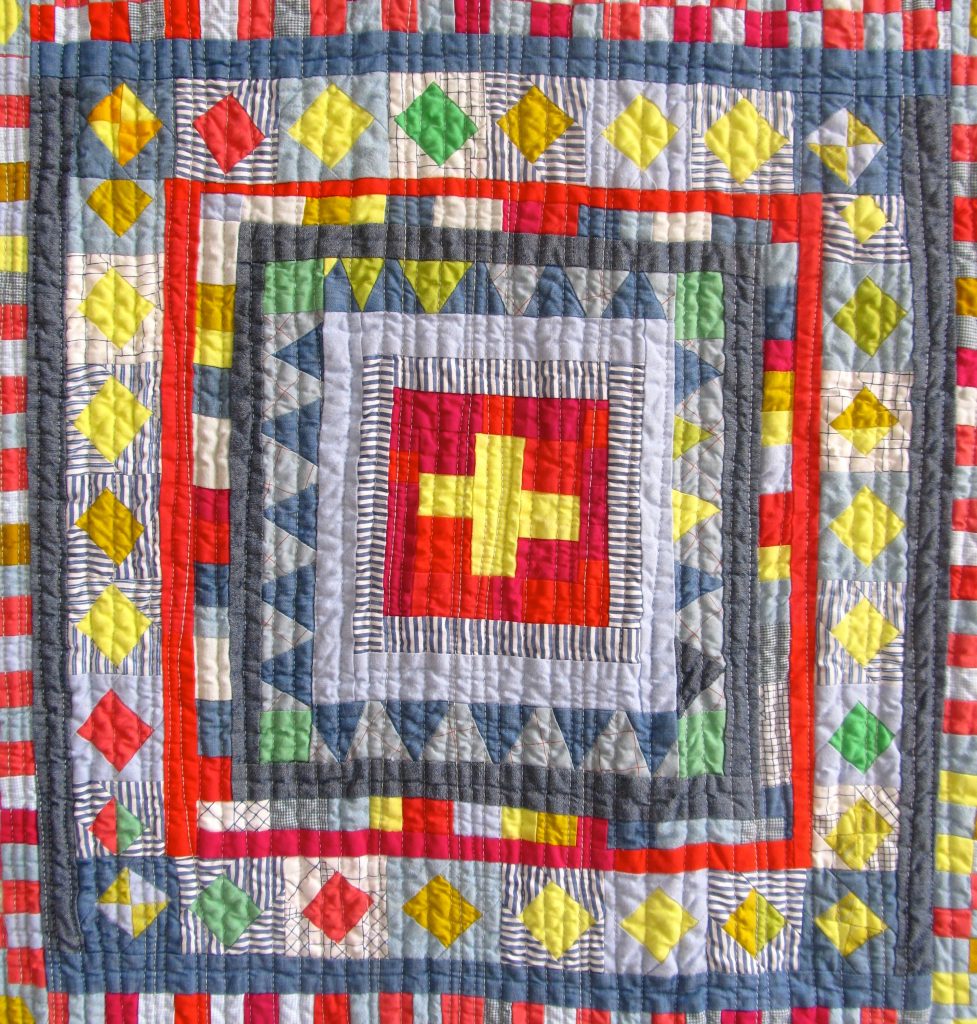
Journey Medallion (Detail). Image courtesy of Scarlet Sparkuhl Delia.
What was the most challenging thing you ever made?
Scarlet: Journey Medallion was the most challenging piece I’ve made. This was an exploration in the journey of motherhood and career life, and the complexities of those identities. Life as a modern woman is still sort of a mystery to me. Raised to believe I can do it all (have a family, be a professional, be an artist), I’ve found that accomplishing all of that is sort of overwhelming. Exceptionally fulfilling? Yes. A balancing act? Every minute of the day. Journey Medallion allowed me to experience each layer of my identity over several years. I came back to the improvisational medallion layers over and over again. It took a lot of stick-to-it-ness and dedication to keep going back. In the end I was so pleased with the result. Whenever I look at it I am reminded of all the other women who share similar struggles, and find comfort in that experience.
Thank you, Scarlet! It’s been a pleasure getting to know more about you and your work! For more about Scarlet, visit her website, or connect with her on Instagram.
Want to participate in the Creativity Project? You can do that! Click here to take the survey!
The Creativity Project can be found on Instagram, Pinterest, Twitter or Bloglovin’. Or check back here every Friday of 2018!
7 Comments
Comments are closed.

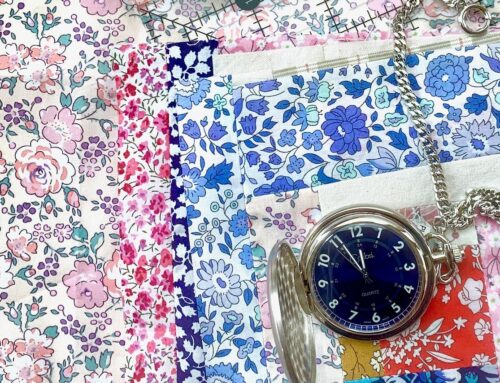
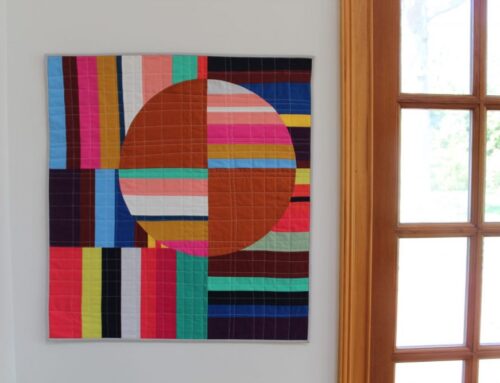
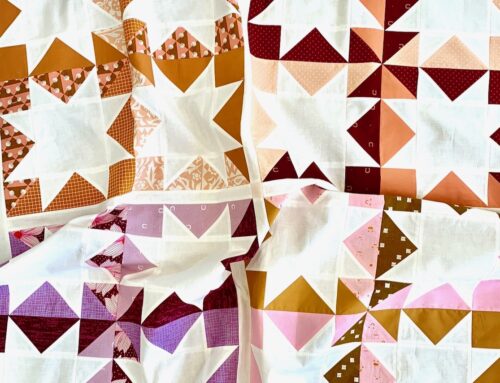

I am so thankful to you for these Creativity Project interviews. Feeds my soul.
Thank you Donna. When I started this project, this was my hope that it would resonate with others. I can’t tell you how happy this makes me to hear.
I think this series is my favorite read of the week. There is something to be gleaned from each one. I haven’t seen Scarlett’s work before so this was such a treat. Scarlett’s philosophy is well balanced – I love the quote by Martha Graham; In one of her most famous quotes she reminds us “there is only one of you in all time, this expression is unique, and if you block it, it will never exist through any other medium; and be lost.” This is such great perspective and even if we don’t consider ourself as an artist of great importance in this world, we are unique – there is just one of me. I am not articulating this well at all but this struck a chord within me. Thanks Kim (and Scarlett!)
Thank you Bernie! And I think you articulate these thoughts perfectly! There is only one you (and me) and what we have to create is unique to us. It’s important for us remember when we get stuck in the process.
I am fascinated by this series. I love the question on intention and believe it to be the most revelatory. Even though I don’t comment every week, I am a faithful reader and have learned so much. I’ll be sad to see it go!
I love this series. I find the question on intention to be the most revelatory. I have learned so much about others (and myself). Even though I don’t comment all the time, please know that I am a faithful reader. I’ll be sad to see it go!
Thanks Pam – so happy to hear others love this series as much as I do! Each week, I look forward to seeing what question resonates with each artist and how their life’s journey affects their answers. We have some really fun ones coming up!